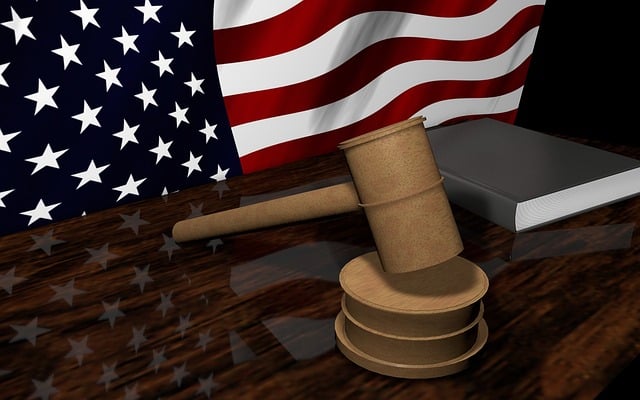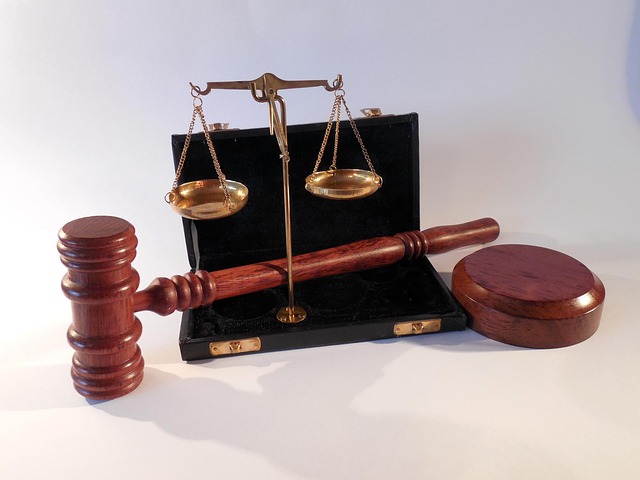Antitrust laws protect fair competition, penalizing violations with severe consequences. To file a personal injury claim, individuals and businesses affected by practices like price-fixing or market division must gather evidence, including financial records and sales data, and consult antitrust law experts. Choosing skilled legal representation is vital to navigate complex laws, avoid indictment, and secure compensation through settlements or jury trials, potentially receiving both monetary damages and injunctive relief.
Antitrust violation cases play a critical role in maintaining fair market competition. When businesses break antitrust laws, it can result in significant harm for consumers and competitors alike. This article guides you through essential steps on how to file a personal injury claim involving antitrust issues. From understanding relevant laws to navigating the legal process, we cover everything you need to know. Learn about identifying potential violations, gathering evidence, choosing legal representation, and filing a suit effectively.
- Understanding Antitrust Laws and Their Relevance
- Identifying Potential Violations and Harm
- Gathering Evidence for Your Claim
- Choosing the Right Legal Representation
- Navigating the Legal Process and Filing a Suit
Understanding Antitrust Laws and Their Relevance

Antitrust laws are a crucial set of regulations designed to maintain fair competition in the marketplace. These laws prohibit businesses from engaging in practices that restrict trade, such as forming monopolies or participating in price-fixing schemes. Understanding and adhering to antitrust laws is essential for companies to avoid legal repercussions and promote healthy economic competition. Violations can lead to significant penalties, including monetary fines and even jail time for corporate executives involved in white-collar crimes.
For individuals who suffer losses due to antitrust violations, particularly in the context of personal injury claims, knowing how to file a case is vital. If you believe you’ve been affected by anti-competitive behavior, it’s important to seek legal counsel to understand your rights and options. Achieving extraordinary results in such cases often requires robust evidence and a deep understanding of complex legal frameworks. While some violations may lead to settlement agreements, others could result in high-stakes jury trials, ensuring that justice is served and economic crimes are addressed effectively.
Identifying Potential Violations and Harm

Identifying potential antitrust violations requires a keen understanding of market dynamics and competition laws. Business operators and consumers alike should be vigilant for any practices that stifle competition, such as price-fixing, market division, or abuse of dominant market positions. When a company engages in anti-competitive behaviour, it can cause significant harm to customers, competitors, and even the broader economy. This harm manifests in various forms, including higher prices, reduced product quality, limited consumer choice, and damaged innovation.
For those who have suffered injuries due to such violations—whether corporate or individual clients—the question often arises: How to File a Personal Injury Claim? The first step is to gather evidence of the violation, document any financial losses or damages incurred, and consult with legal professionals experienced in antitrust law. By taking these proactive measures, individuals can protect their rights and potentially avoid indictment while seeking compensation for their respective business interests and individual suffering.
Gathering Evidence for Your Claim

When pursuing an antitrust violation case, gathering robust evidence is paramount to building a strong claim. The first step involves meticulously documenting any harm or losses incurred as a result of suspected anti-competitive practices. This includes gathering financial records, sales data, and market analysis to demonstrate the impact on your business or consumers.
Throughout all stages of the investigative and enforcement process, it’s crucial to maintain detailed records. This evidence should illustrate anticompetitive behavior, such as price fixing, market division, or abuse of dominant market position. A thorough understanding of how these practices affected your ability to operate or compete in the market is essential. Remember that a well-prepared case, replete with concrete facts and data, significantly enhances your chances in jury trials for his clients.
Choosing the Right Legal Representation

Choosing the right legal representation is a crucial step when navigating complex antitrust violation cases. It’s essential to find an attorney who specialises in antitrust law, with a proven track record of success. When considering how to file a personal injury claim against companies involved in these violations, expertise is key to ensuring your case receives the attention it deserves. Look for lawyers who have experience handling high-profile cases and understand the intricate legal implications of antitrust breaches.
A skilled attorney will not only help you avoid indictment but also guide you through the process of seeking compensation for any damages incurred as a result of these violations. Their knowledge of both state and federal laws related to competition and consumer protection is invaluable. Furthermore, an advocate with strong connections within the philanthropic and political communities can offer additional support, ensuring your case gains the necessary exposure and attention from relevant stakeholders.
Navigating the Legal Process and Filing a Suit

Navigating the legal process to file a suit for antitrust violation can be complex. It involves understanding intricate laws and regulations designed to protect fair competition in the marketplace. The first step is to gather substantial evidence demonstrating anti-competitive practices, such as price fixing or market division, by a respective business. This may include documents, communications, and financial records that shed light on the alleged violations.
Once prepared, individuals affected by these practices can file a personal injury claim. This involves submitting a detailed complaint to the appropriate court, outlining the damages incurred due to the antitrust violation. It’s crucial to present a compelling case with solid legal arguments to avoid a complete dismissal of all charges. In addition to financial compensation, successful plaintiffs may also be eligible for injunctive relief, ensuring the respective business ceases its anti-competitive activities and adheres to fair market standards.
When dealing with potential antitrust violations, understanding your rights and knowing how to navigate the legal process is crucial. By identifying harm caused by such violations, gathering solid evidence, and choosing experienced legal representation, you can effectively file a claim. Remember, while navigating complex legal landscapes can seem daunting, following the steps outlined in this guide—from understanding relevant laws to filing a personal injury claim—will empower you to stand up for your rights and seek justice.






